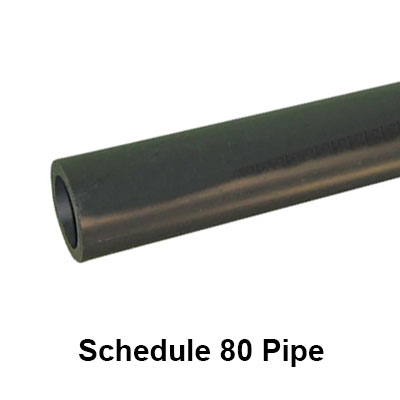BENEFITS OF PVC PIPES FOR INDUSTRIAL AND RESIDENTIAL PROJECTS
Lightweight and Easy to Handle: PVC pipes are significantly lighter than metal or other rigid plastic pipe options, making them easier to transport, position, and install. This reduces labor demands and speeds up project timelines for both residential plumbing jobs and large-scale industrial installations. The lightweight nature of PVC piping also minimizes strain on support structures and reduces the risk of injury during handling.
Cost-Effective Over the Long Term: Thanks to a low cost per linear foot, PVC pipe is an economical choice for budget-conscious projects without sacrificing quality. Its affordability allows for efficient scaling in pressure applications, irrigation systems, or sewer installations. Beyond upfront savings, its long service life and minimal maintenance requirements further reduce total ownership costs over time.
Corrosion and Chemical Resistance: Unlike metal pipe alternatives, PVC pipes will not corrode, pit, or degrade when exposed to moisture, aggressive soils, or a range of chemicals. This makes them ideal for applications such as chemical processing, water tanks, and wastewater transport. Their strong resistance ensures long-lasting performance in demanding environments where other materials may fail.
Long Lifespan With Minimal Maintenance: PVC piping can last for decades under normal conditions, especially when used in systems that handle potable water, sewer waste, or low-pressure industrial fluids. Its durability translates to fewer repairs, reduced downtime, and lower ongoing maintenance costs — an attractive benefit for residential homeowners and facility managers alike.
Compatible With Valves, Fittings, and Adhesives: Whether you’re working with a basic plumbing repair or a complex piping network, PVC pipes are compatible with a wide range of accessories. They work seamlessly with valves, pressure gauges, adhesives, and various connection methods, including plain end and threaded fittings. This flexibility allows for quick adjustments and expansions in the field.
Safe for Potable Water: When certified to NSF standards, PVC pipe is a safe and reliable choice for drinking water systems. Its non-toxic, plastic composition ensures no harmful leaching, making it compliant with safety regulations for both residential and municipal water supply lines.
APPLICATIONS OF PVC PIPING
PVC piping is used across a broad range of industries due to its durability, cost-effectiveness, and chemical resistance. In residential and commercial settings, PVC pipe is a staple in plumbing systems for both potable water and sewer lines. Its ability to withstand corrosion and maintain pressure applications makes it ideal for drainage, wastewater, and drinking water systems.
In agriculture, PVC pipes are widely used for irrigation, offering reliable flow to crops without the rust or buildup associated with metal alternatives. Industrial sectors also depend on PVC piping for chemical transport, as its resistance to various substances ensures safe and long-lasting performance.
Additional applications include HVAC condensate drains and venting systems, as well as pool, spa, and water tank plumbing. Thanks to its compatibility with electrical conduit, fittings, and pressure gauges, PVC is one of the most adaptable plastic pipe solutions available today.

























